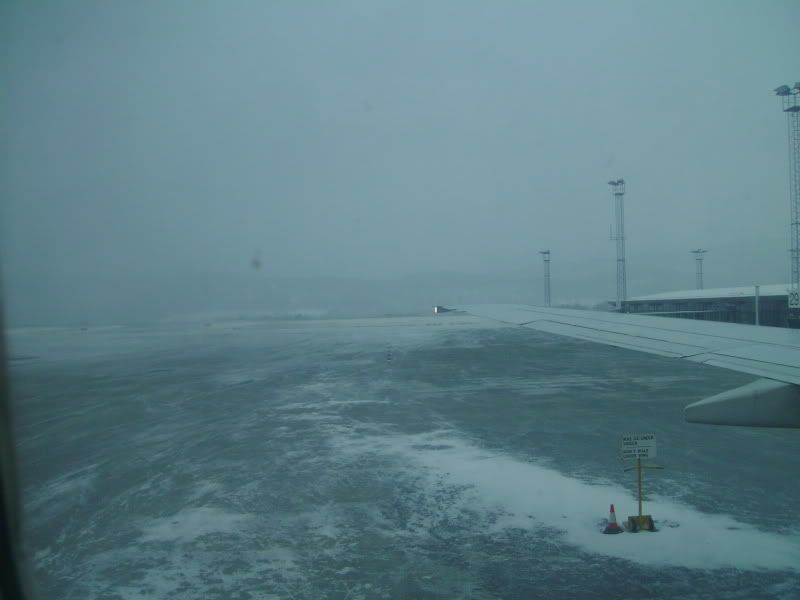The air in the atmosphere isn't smooth, by the very nature of weather it gets mixed up and flows around the pressure systems (the highs and lows that weathermen/women are always talking about)
Now of course mixing of the air isn't uniform, some (usually around high pressure systems) is generally very gentle and as such you get smooth flying conditions, little cloud and generally sunny weather. Around Low pressures (sadly this mainly what we get in the UK) the mixing is generally more vigorous and as such makes for more bumps.
It is hard to actually describe what the aircraft is doing when it flys through the turbulent air, usually it doesn't move as much as you feel, This is because of the perspective in the passenger cabin (i.e there isn't a decent horizon to look out of, other then through the tiny windows) tends to magnify the sensations. People tend not to like the sensations because they are not used to them, and also because turbulence tends to induce a little negative-G (this is the brief feeling that your falling, as opposed to positive-G that forces you into your seat). Negative-G by its nature is everyone doesn't like, the mind doesn't like feeling its falling! Generally most people like positive-G since it reassuringly presses you into your seat and gives you a feeling of security. When feeling both the positive and negative during bumps the mind tends to focus of the negative feelings and makes people feeling worried. In my experience the more you experience turbulence the more you'll feel at ease with it. This is mainly because the brain learns that the sensations it is getting aren't a threat, and can actually become enjoyable.
As have been suggested going for a flight in a small aircraft is a very good idea. They have big cannopys and gives you a big horizon to look at which helps the brain process the sensations. Small planes also feel the bumps more and give you a chance to get used to them. If you want to go all out try and do some aerobatics in a light aircraft. Once you've been pulling 8G or so you should ever worry about any of the tiny things airliners get!
To answer the question about when turbulence gets dangerous, well it is a huge amount more then any of you have ever felt. The aircraft are extremely strong and are designed to cope with far more G loading the nature can dish out. The only places that can start to approach the limits of the aircraft would be super-cell thunderstorms that have huge vertical air movements in them. Even these would have to be very powerful storms (which are rare in the UK, not common in Europe and only occasionally happen in the US) But again there is a very simple answer to this. Don't fly through thunderstorms! Which is exactly what us pilots do. We have accurate weather radars, reports from other aircraft and then even if all of that fails we have the most accurate and sensitive instrument known for analysing the cloud formations, our eyes! You really don't have anything to worry about

As for what to do to alleviate your fears well I'm afraid I can't help you there. I've never had the fear so can't really help with how to get rid of them. Personally I'd not go down the drug or alcohol route. Just try and understand why you have the fear and then just get yourself over it, as I said by maybe going for a trial flight etc.




 Wouldn't try that again though.
Wouldn't try that again though.

